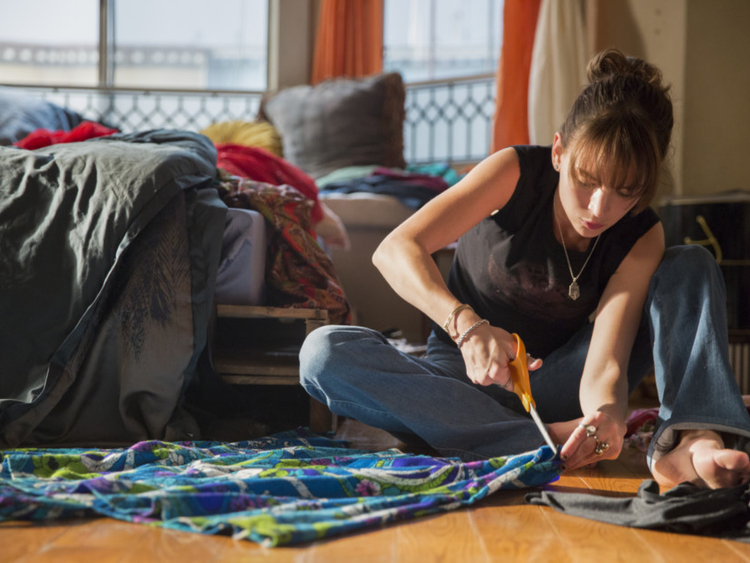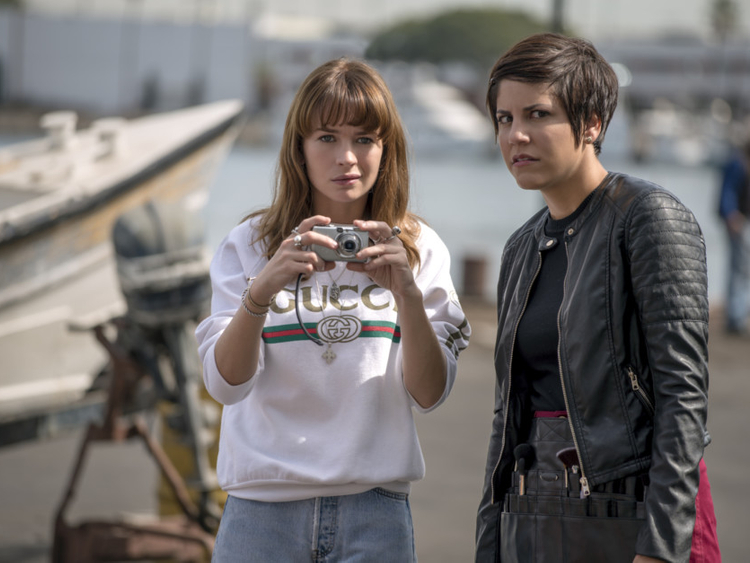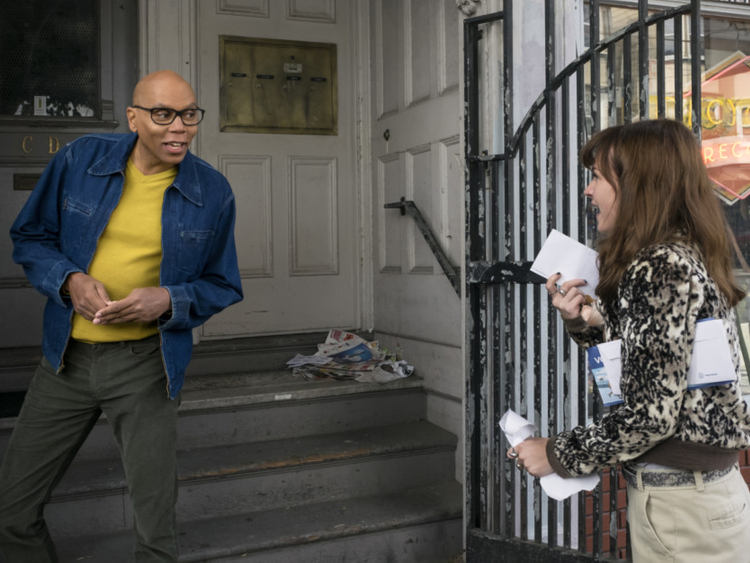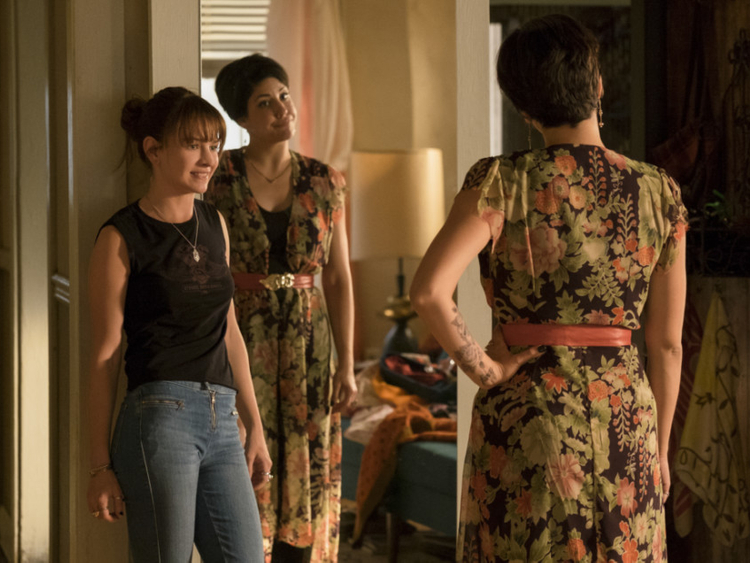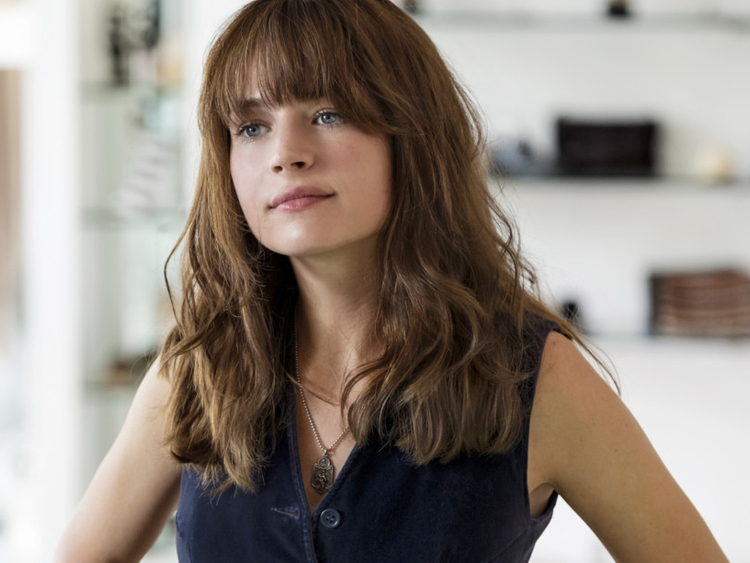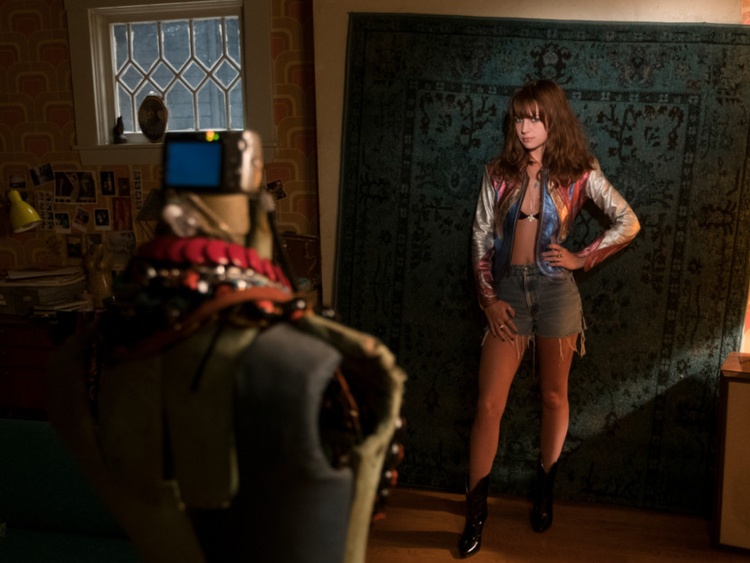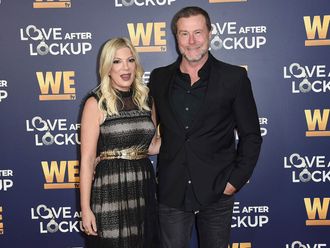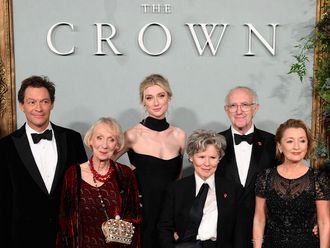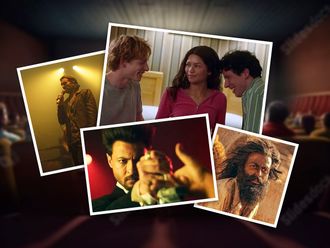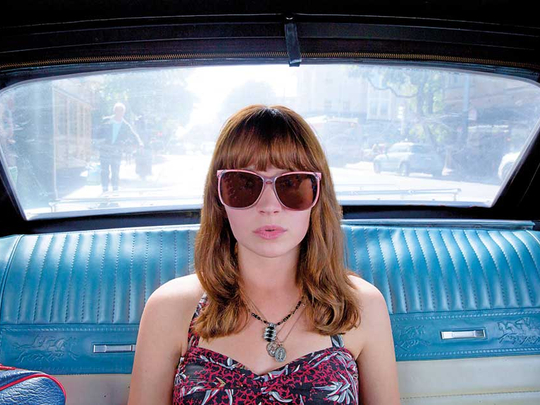
When the screenwriter Kay Cannon started shopping around her new show — a comedy loosely based on the Nasty Gal founder Sophia Amoruso’s rise from Dumpster-diving shoplifter to the e-commerce fashion queen of the early aughts — television executives requested some revisions.
Cannon was told not to name the show after the title of Amoruso’s best-selling memoir, “#GIRLBOSS,” because the “girl” part could be a turn-off to audiences. So, too, could other elements of the show. Like the lead character’s personality.
“It always comes down to this idea of the female lead having to be incredibly likeable,” Cannon said. “I wanted to tell the story of a flawed woman that is not a fairy tale.”
With Girlboss, which debuted on Netflix on Friday, Cannon will try to slay the likeability requirement, one that prevents writers from giving female characters the rough edges that make for the most interesting storytelling. And in Sophia (played by the Tomorrowland star Britt Robertson), the show is riffing off a real-life, flawed, female boss. Amoruso became the face of young female entrepreneurship, a position that attracted both outsize attention to and criticism of her business dealings. Her real-life story has grown even thornier in the lead-up to the series premiere.
Girlboss was born when Amoruso’s #GIRLBOSS — partly a memoir of her rise to success, partly a manifesto for inspiring other women to rise, too — landed in the hands of Charlize Theron. She optioned the book and brought it to Cannon, one of Hollywood’s most in-demand writers of female comedic characters.
Cannon made her mark as a writer and producer working for Tina Fey on 30 Rock, where she was nominated for an Emmy, then on the Fox series New Girl and as the writer of the successful Pitch Perfect films. Along the way, she signed a development deal with 20th Century Fox TV. But when she and Theron refused to water down the Girlboss concept — or to ditch the title — television networks passed. Netflix snapped it up.
In the pilot, Sophia is a listless 23-year-old who is allergic to responsibility. She steals a sandwich from her boss and a rug from the side of the street. Only when she finds a cheap vintage jacket and decides to style it and flip it on eBay — the spark of what becomes a dizzyingly successful online fashion business — is she challenged to grow up.
“I wanted to be able to show how mad she was at the beginning,” Cannon said. “That’s a very real response when you’re lost, rudderless and don’t know what your life is about.” If the show had ended up on a network, “I don’t know if we would have been able to really capture that element,” she added. “If you find her off-putting at the beginning, you’re going to turn the channel.”
Netflix has emerged as an accommodating space for a show like Girlboss, partly because its binge-watching format allows creators a longer runway for developing characters and hooking an audience. But it’s also because Netflix is so hungry for original content — it plans to spend $6 billion (Dh22 billion) this year on it and has recently adopted the slogan “There’s Never Enough TV.”
“Networks have different demands placed on them than cable and streaming services do — they have to hit multiple demographics; their shows do need to be more broad,” said Willa Paskin, the TV critic for Slate. “Netflix is starting to produce the volume of a network, and their shows don’t need to please everybody.” But the rise of streaming, Paskin said, also spurs networks to keep pace with its successes. So even as many comedies starring complex, messy women — like Fey’s Unbreakable Kimmy Schmidt and Jill Soloway’s Transparent — have ended up online, the networks are investing in their own comedic anti-heroines, like the stars of CW’s Crazy Ex-Girlfriend and NBC’s The Good Place.
Adapting Amoruso’s story for television meant exaggerating her highs and lows. The Sophia of the pilot is more aggressive and less mature than the real woman was. “I am very proud to have not been a petty thief at the time I started my business,” Amoruso said. “I had outgrown that by the time eBay rolled round.” What’s true, she added, is this: “I was a really lost 23-year-old, and I had no idea what my talents were yet.”
Robertson described creating the fictional Sophia as a balancing act. “I was told, ‘We need her to be tenacious, we need her to be passionate, we need her to be driven, and we need her to be smart and dumb and weird,’ and all of these things that make her appealing to audiences,” she said. “But she also has a very specific following, so we wanted to cater certain parts of the character to the audience that has followed her and supported her.”
Part of the challenge for Cannon in creating the character was that she was based on a colleague: Amoruso is an executive producer on the show. “Aaron Sorkin wasn’t hanging and having dinners with Mark Zuckerberg,” Cannon acknowledged, referencing The Social Network.
But she said that she was impressed by Amoruso’s openness about her own mistakes. Amoruso contributed styling advice, sometimes lending items from her own closet, and weighed in on anecdotal material from her past. “Beyond that, when there is a show being made about your life, it’s best to stay out of the way, because the last thing you want to be is the person meddling to preserve their reputation,” Amoruso said.
Amoruso’s story is developing even as the show debuts. Since #GIRLBOSS was published in 2014, Amoruso has stepped down as the chief executive of Nasty Gal, the company has filed for bankruptcy and it has been acquired by British retailer Boohoo. Amoruso no longer has ties with the company and instead has turned to making female success her business, starting a Girlboss website and holding rallies around female success. “Everyone involved in the show has been totally understanding of the fact that this is a real story of the ups and downs of someone who dared to do something larger than life,” Amoruso said. “And with that comes bumps in the road.”
Still, some early reviews of the series have dwelled on Nasty Gal’s checkered recent history instead of the show’s dramatisation of its past. “We’re having a little bit of a struggle with reality,” Cannon said.
But to Cannon, the spots and stains in Amoruso’s success story only give her more material to turn into compelling television. “That’s all storytelling for us in the future,” she said. “If Netflix were to give us more seasons, we’d explore her catapult into success and all the problems that come with it.”



